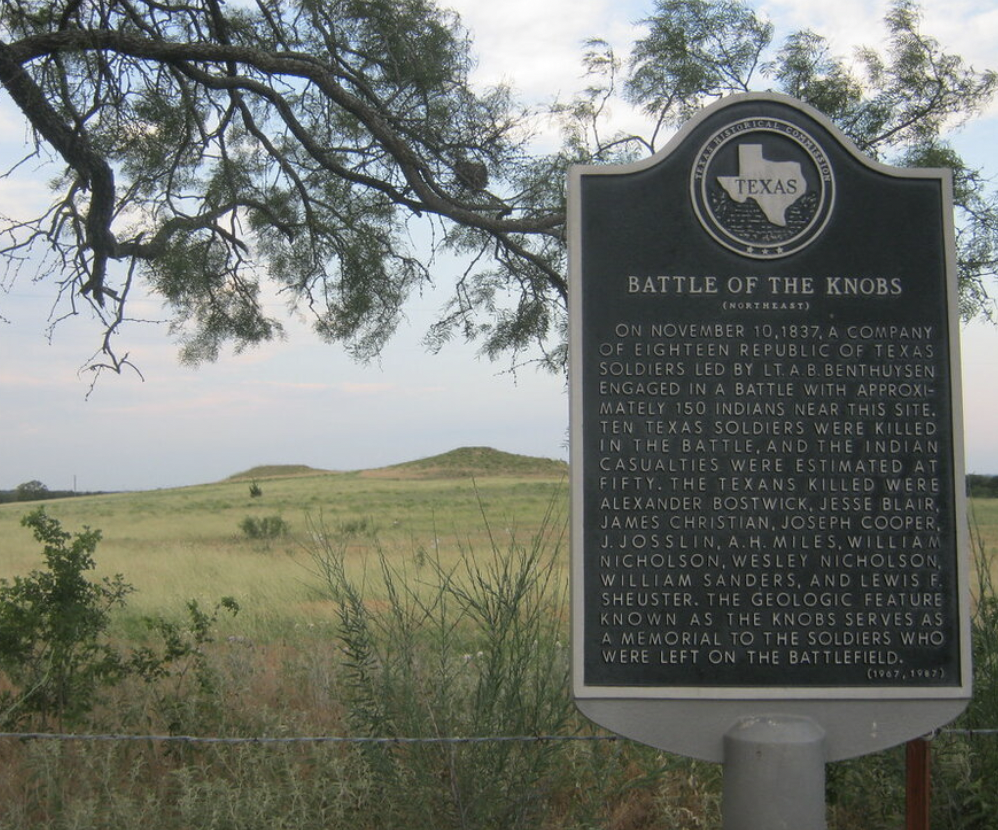Battle of the Knobs
Old Decatur Road, North of Decatur, Texas 76234
From Decatur, head north on FM 730, turn left onto Old Decatur Road and continue about 2 miles to marker.
On November 10, 1837, a company of eighteen Republic of Texas soldiers led by Lt. A. B. Benthuysen engaged in a battle with approximately 150 Indians near this site. Ten Texas soldiers were killed in the battle, and the Indian casualties were estimated at fifty. The Texans killed were Alexander Bostwick, Jesse Blair, James Christian, Joseph Cooper, J. Josslin, A. H. Miles, William Nicholson, Wesley Nicholson, William Sanders, and Lewis F. Sheuster.
The geologic feature known as the Knobs serves as a memorial to the soldiers who were left on the battlefield.
Thanks to the invaluable history written by Mr. Webb called The Texas Rangers, we have Lieutenant Van Benthusen first-hand account of the fight:
“I stood at the top of this mound until I saw about one hundred and fifty mount their horses and come towards us. I then ran down and stationed my men in a point of timber; the Indians immediately charged upon us, uttering the most savage yells. They soon surrounded our little party of eighteen men, and for about two hours a severe fire was kept up on both sides without ceasing, most of the time they were not farther than fifteen or twenty steps; they were led on by a chief who was most splendidly mounted; our men shot this forward chief down, when the savages ceased firing and fell back for some distance; I thought the battle was over; but I was mistaken, for in about fifteen minutes the Indians again advanced upon us, led by another chief. At this time I had lost but four men and six horses.
Presently we discovered a smoke rising around us, the Indians had made a ring of fire completely around our position, the fire was advancing rapidly, our only alternative was to leave our remaining horses and charge the savages on foot. The charge lasted about ten minutes; six more brave men fell in routing the Indians… We then commenced our retreat on foot.”
The retreat with the wounded men required seventeen days, ending at the Sabine on November 27, after an absence of fifty-eight days.

